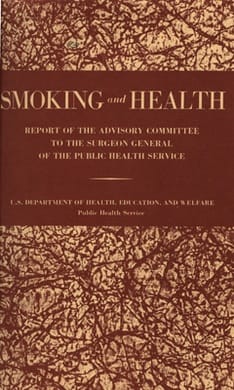In a groundbreaking announcement, the U.S. Surgeon General has urged for the inclusion of cancer warning labels on alcoholic beverages, a measure that aims to inform consumers about the health risks associated with alcohol consumption. This recommendation is rooted in a growing body of evidence that highlights the relationship between alcohol use and an increased risk of several types of cancer, including breast, liver, and colorectal cancers. The call for action underscores the need for greater public awareness and education regarding the potential dangers of alcohol.
The Surgeon General’s office has emphasized that alcohol is not only a risk factor for cancer but also contributes to a range of other health issues, including liver disease, cardiovascular problems, and addiction. By introducing warning labels, the initiative seeks to provide consumers with critical information that can influence their choices regarding alcohol consumption. The Surgeon General’s call aligns with similar public health campaigns that have successfully raised awareness about the dangers of tobacco use through warning labels.
Research has consistently shown that even moderate alcohol consumption can increase the risk of developing certain cancers. For instance, studies indicate that women who consume alcohol regularly have a higher likelihood of developing breast cancer, while heavy drinking is linked to an elevated risk of liver and esophageal cancers. The scientific community has long recognized the need for clear communication about these risks, and the Surgeon General’s proposal represents a significant step toward addressing this public health concern.
The proposed warning labels would serve as a reminder that alcohol consumption is not without its risks. Advocates for this initiative argue that similar to the warnings on cigarette packages, alcohol labels should inform consumers about the potential health consequences of their choices. By raising awareness, the Surgeon General hopes to empower individuals to make informed decisions about their alcohol consumption and to encourage healthier lifestyle choices.
In addition to the cancer warning labels, the Surgeon General’s office is also advocating for a broader public health campaign aimed at educating the public about the risks associated with alcohol consumption. This campaign would include community outreach, educational materials, and partnerships with healthcare providers to disseminate information about the dangers of excessive drinking and its links to cancer.
The call for alcohol warning labels has garnered support from various health organizations and advocacy groups. Many experts in the field of public health believe that this initiative could lead to a decrease in alcohol-related health issues and ultimately save lives. The potential impact of such a measure is significant, given the high rates of alcohol consumption in the United States and its associated health risks.
Critics of the proposal, however, argue that warning labels alone may not be sufficient to change consumer behavior. They contend that a comprehensive approach is necessary, including increased access to treatment for alcohol use disorders and more robust public health campaigns that address the cultural acceptance of drinking. Nonetheless, the Surgeon General’s call for warning labels is seen as a crucial first step in addressing the public health crisis associated with alcohol consumption.
As discussions surrounding the implementation of these warning labels continue, it is essential to consider the broader context of alcohol consumption in society. Alcohol has long been ingrained in social and cultural practices, making it challenging to shift perceptions and behaviors. However, as the evidence linking alcohol to cancer and other health issues becomes increasingly clear, the need for change is more pressing than ever.
In conclusion, the U.S. Surgeon General’s call for alcohol products to carry cancer warning labels represents a significant public health initiative aimed at raising awareness about the risks associated with alcohol consumption. By informing consumers of the potential dangers, this initiative seeks to empower individuals to make healthier choices and ultimately reduce the incidence of alcohol-related health issues. As the public health community rallies around this cause, the hope is that increased awareness will lead to a shift in attitudes toward alcohol consumption and contribute to a healthier society.


